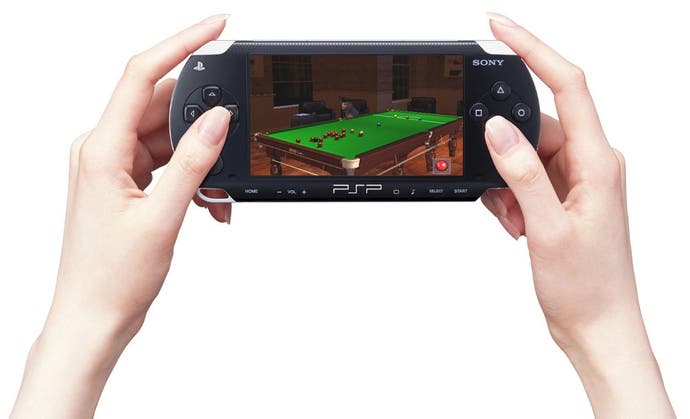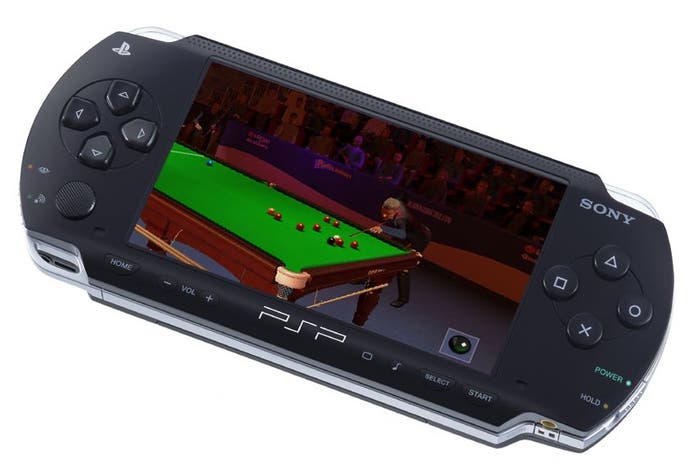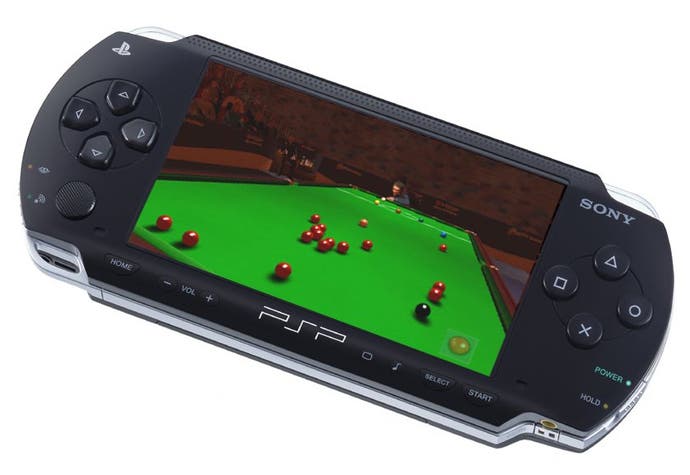World Snooker Challenge
You don't even have to find somewhere to balance your pint.

Football games [odd start -Ed] ... Fine. Tennis games [happier] need the players. In fact, there aren't many ball games that don't. It's all very well having splendidly realistic ball physics and a wonderfully detailed playing surface that scuffs, reflects, ripples, rustles, screeches, whatever. But you need the players too. And they have to look like they're playing the game. Snooker is different. Every snooker (or pool) game that I've ever played has lived or died based on what happens on the cloth within that immaculately polished wooden frame. Believability in snooker games comes down to realistic shot options, ball behaviour, clacking noises and the developer's ability to convincingly move spotless and reflective round objects around without them looking like sprite-based trees in a Build Engine forest turning to face you with every step. So, without the obscure reference: to convincingly move spotless and reflective round objects around and actually make it look like they're rolling.
That's why World Snooker Challenge on the PSP - sister title to World Snooker Championship 2005 on PS2, Xbox and PC - is special. Blade Interactive - now published by SEGA Europe rather than Codemasters - has done what I've described above, with all the right frills. And it has the right players, too, although as good as they do look they do still suffer slightly from appearing to be waistcoat-wearing player models with the real, slightly-too-big faces Photoshopped on top. But hey - I'm not here for the players.
I am, to a certain extent, here for the waistcoats, which is why it's encouraging to hear that you'll be able to unlock more and more as you make progress through the game's plethora of game modes, which include every conceivable variation on snooker, pool, trick shot play and all the rest, but that's another matter.
The important point is, as I said, what happens on the table. And here is what happens:

You view the table from a third-person vantage point with the option to take a look from directly above. All the various things you'd need to play a shot are spread over the PSP's myriad buttons. You can change the point of cue contact on the cue ball, change cue elevation, fine-tune your aiming by holding down a shoulder button as a modifier, select the coloured ball you want to go for post-red, and eventually, obviously, select shot speed and play the shot. You can then skip through the bits of animation that bore you, turn them off completely; whatever you like.
And, cunningly, you don't have to go for the bit of that paragraph that said, "select shot speed and play the shot". If you prefer, you can take a Tiger Woods PGA Tour-style approach and use the analogue nub/stick as a sort of prosthetic cue, which you drag back and then thrust forward. It's a similar method of control to classic PC series Virtual Pool, which used the mouse. It isn't quite as good or emphatic as that - after all, you can't draw the analogue stick back halfway across a desk and then thrust it forward like you're punching your sister's scheming boyfriend up the bracket. But it's a good option to have.
And it perfectly complements the action on the table, which is never less than convincing. The PSP's visual capabilities mean that there's very little hint of jaggedness around the edges of the balls, nor the fuzziness that developers have sometimes opted for in the past; the overall effect is convincing. And when those balls move, they move. You're convinced. You can tell I am, because I'm resorting to punchy sentences.
There's no obvious slowdown, despite the effort Blade has (misguidedly, in my view - although my view is of a world where eye contact is petrifying and small children are a constant threat to my dignity) expended on things outside the wood, and the physics are never noticeably unrealistic; at least they weren't during the time I spent with the game.

Playing snooker on the PSP is clearly a good idea, and interestingly it's largely for technical reasons. The vastness of the UMD means there's a ludicrous amount of content, the wireless networking means you can play it with other people, and the PS2-level visuals mean that it manages to look convincing and believable. But, given thought, it's actually the glassy wide screen that makes the most difference.
The resolution is obviously a key element, but it's more than that; it's the dimensions. Playing my import copy of Archer Maclean's 3D Pool on the Game Boy Advance (cheers Si), I enjoy myself (though I curse the jaggedness regularly. And the camera) but the aspect ratio means that you can't easily view the table from above. The PSP, obviously, is practically snooker table shaped, and the benefits are twofold: one, you can view the entire thing from above; two, as a result you can precisely align shots with much less margin for error. Anyone who's ever played a snooker game on a TV or PC screen will know of the craning neck scenario, as you try to get the ball's prospective path to bisect your nose so you can be sure it's going the right way. It's the reason I can now click my head. With the PSP you can just turn it round in your hands. Et voila; you know it's going in, and thanks to the dimensions of the screen you can also judge what it's going to hit as it rebounds around and rolls gracefully toward the other end of the table.
You soon start to rack up scores to rival the real people, and Blade's AI controlled characters don't take it easy on you, so it's an important advantage to have.
Beyond that, what else is there to worry about? What do you expect it to do? Trick shots? Yep. Tournaments? Yep. Multiplayer? Yep. Both wireless and hot-seated? Yep. Waistcoats? Yep.
In fact, hot-seated multiplayer is clearly the future of pub pool. Can't get on the table? Fine, dig out the PSP and pass it round. When it looks and feels this right, it's not that hard to justify. And assuming the final article lives up to Blade's assured handling of the fundamentals throughout, this will live in our PSPs for some considerable time.
Until it ends up in a pint glass or lost down a toilet, anyway. Hic.

